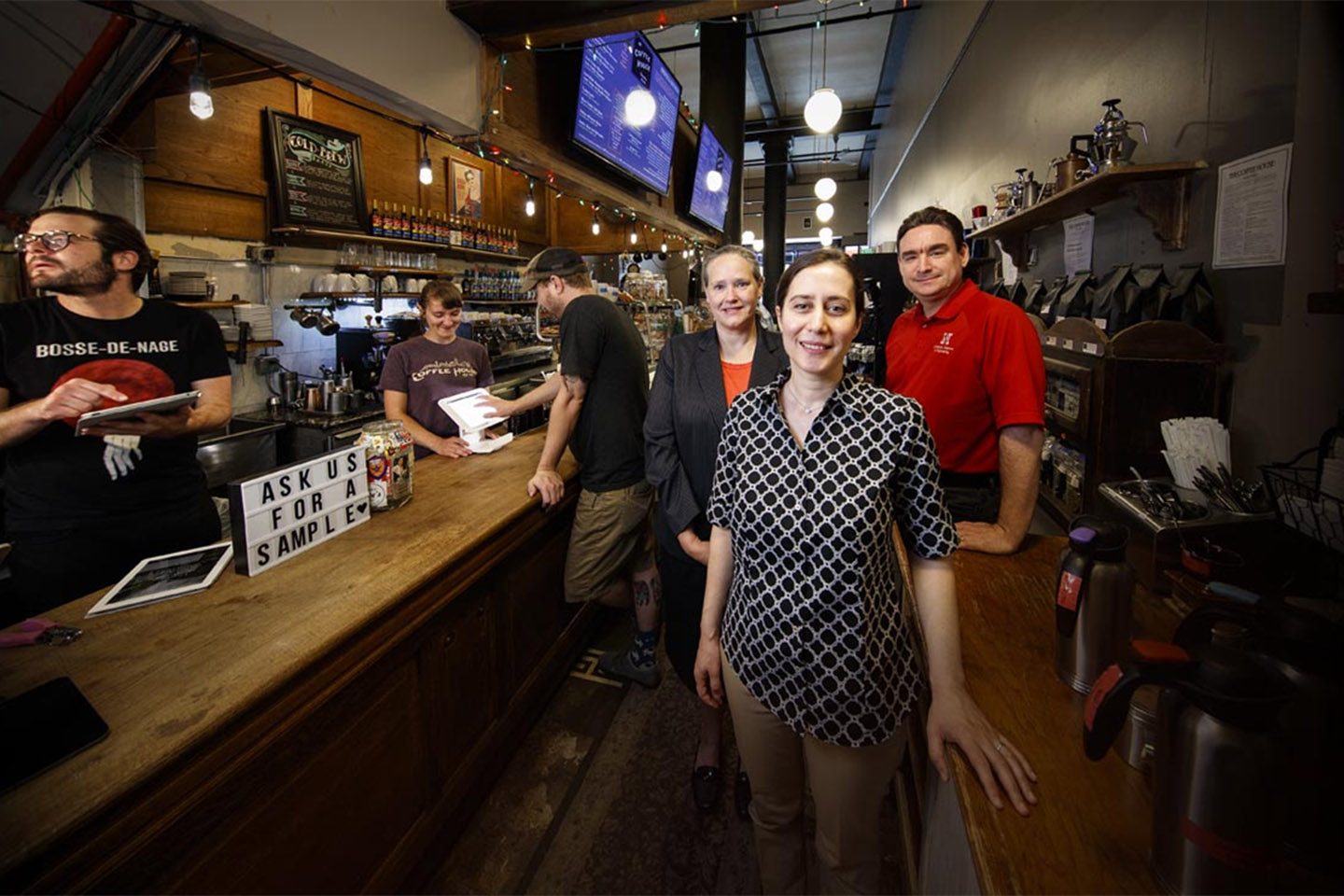
Nebraska researchers, including CSE professor Mehmet Can Vuran, are teaming up to ease internet traffic congestion during wireless rush hours.
With so many mobile devices and other wireless users jumping on the information superhighway, the airwaves are experiencing traffic jams. That’s a conundrum for internet service providers and their customers, who pay for services that ISPs will soon be unable to guarantee during wireless rush hours.
Nebraska supply chain researchers and computer engineers have teamed to help ease congestion. In this case, the supply they’re studying is spectrum, the range of radio frequencies along which wireless communication information travels. Spectrum is finite and allocated among users, including government entities, aviation, emergency services, broadcasting and ISPs.
Everyone must stay in their metaphorical lane. Yet the ISP’s lanes may be severely jammed even when the government’s lanes, for example, are only lightly used.
To improve spectrum efficiency, researchers are developing technologies to facilitate sharing lanes.
Dr. Demet Batur, associate professor of supply chain management and analytics, and her team are working to support spectrum sharing by developing algorithms to help spectrum’s allocated users determine, in real time, how much lane they can afford to share.
Batur’s team is also helping the wireless industry develop new business models that will ease congestion and fix ISPs’ pending pricing conundrum.
Similar to how airlines change ticket prices in real time based on fluctuating supply and demand, Batur’s team is developing algorithms to allow ISPs to dynamically price the internet. Dynamic pricing would shift cost-conscious users to less congested, cheaper times.
“It’s an advanced model that looks at the current state of the system and probabilistically studies it to decide the best price to propose to customers,” Batur said.
She envisions it operating like Uber, in which customers request a price via an app that they accept or reject.
Dynamic pricing would help give those unable to afford regular service an opportunity to access the internet when it’s more affordable. By easing congestion, it would also allow ISPs to guarantee access to those who need it.
The National Science Foundation funds this project.
To learn more about research at Nebraska, visit: https://research.unl.edu.